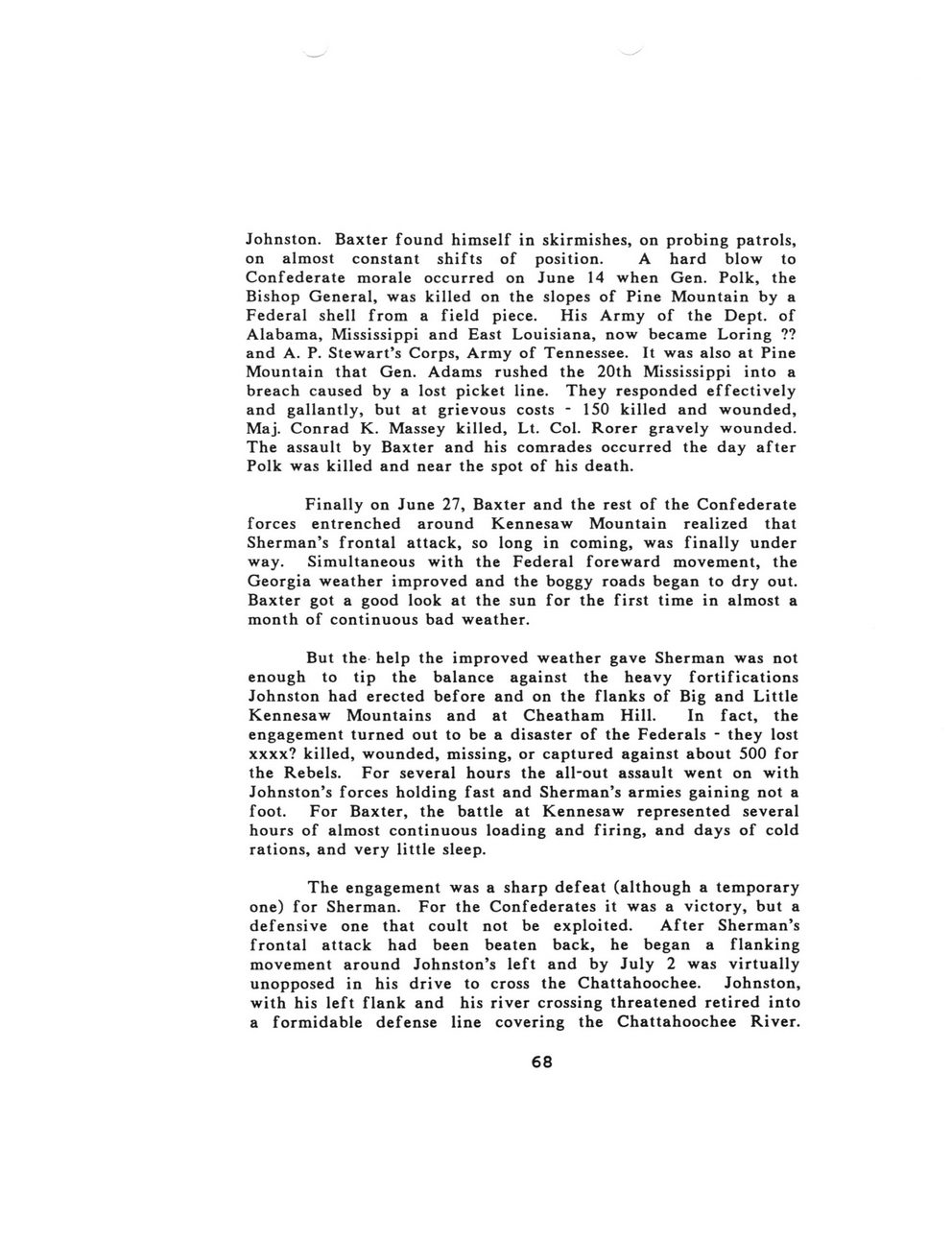This text was obtained via automated optical character recognition.
It has not been edited and may therefore contain several errors.
Johnston. Baxter found himself in skirmishes, on probing patrols, on almost constant shifts of position. A hard blow to Confederate morale occurred on June 14 when Gen. Polk, the Bishop General, was killed on the slopes of Pine Mountain by a Federal shell from a field piece. His Army of the Dept, of Alabama, Mississippi and East Louisiana, now became Loring ?? and A. P. Stewart?s Corps, Army of Tennessee. It was also at Pine Mountain that Gen. Adams rushed the 20th Mississippi into a breach caused by a lost picket line. They responded effectively and gallantly, but at grievous costs * 150 killed and wounded, Maj. Conrad K. Massey killed, Lt. Col. Rorer gravely wounded. The assault by Baxter and his comrades occurred the day after Polk was killed and near the spot of his death. Finally on June 27, Baxter and the rest of the Confederate forces entrenched around Kennesaw Mountain realized that Sherman?s frontal attack, so long in coming, was finally under way. Simultaneous with the Federal foreward movement, the Georgia weather improved and the boggy roads began to dry out. Baxter got a good look at the sun for the first time in almost a month of continuous bad weather. But the help the improved weather gave Sherman was not enough to tip the balance against the heavy fortifications Johnston had erected before and on the flanks of Big and Little Kennesaw Mountains and at Cheatham Hill. In fact, the engagement turned out to be a disaster of the Federals - they lost xxxx? killed, wounded, missing, or captured against about 500 for the Rebels. For several hours the all-out assault went on with Johnston?s forces holding fast and Sherman?s armies gaining not a foot. For Baxter, the battle at Kennesaw represented several hours of almost continuous loading and firing, and days of cold rations, and very little sleep. The engagement was a sharp defeat (although a temporary one) for Sherman. For the Confederates it was a victory, but a defensive one that coult not be exploited. After Sherman?s frontal attack had been beaten back, he began a flanking movement around Johnston?s left and by July 2 was virtually unopposed in his drive to cross the Chattahoochee. Johnston, with his left flank and his river crossing threatened retired into a formidable defense line covering the Chattahoochee River. 68

Baxter, Marion Francis Marion-Francis-Baxter-Bio.-068